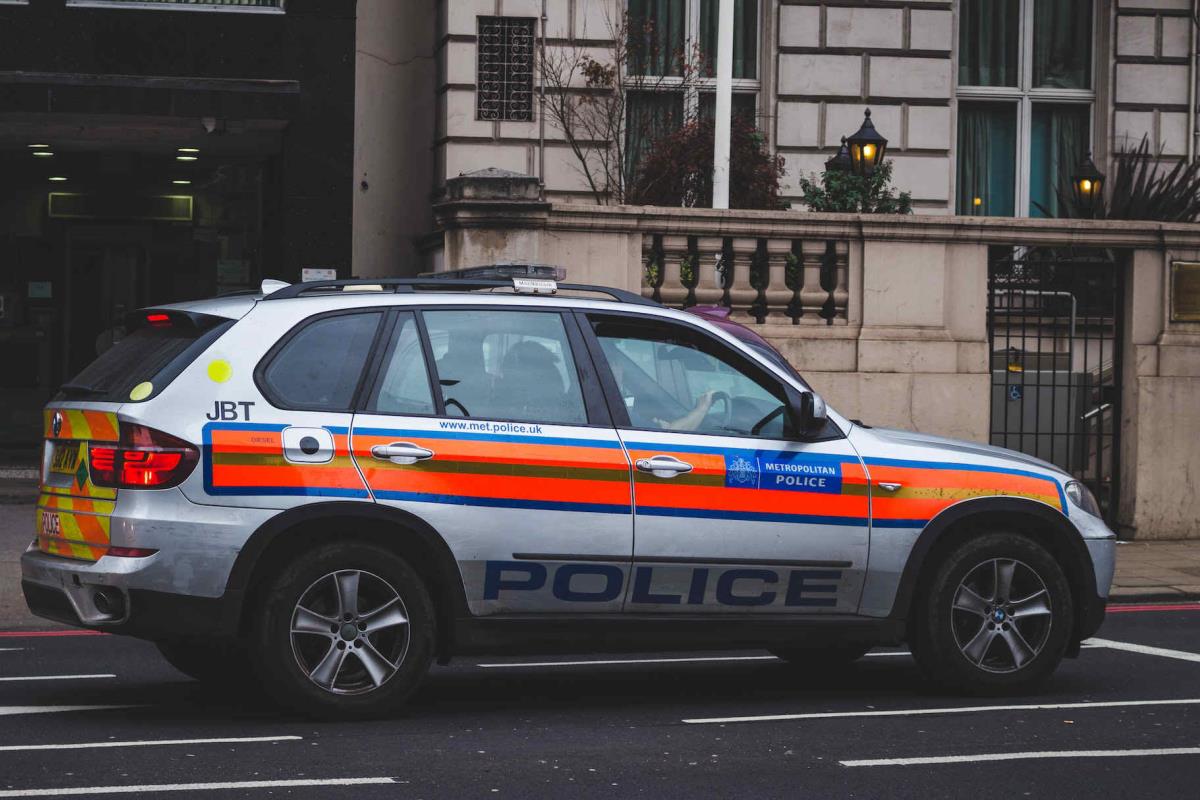
London's Metropolitan Police force is on high alert following a security breach that may have exposed sensitive information through the IT systems of one of its suppliers. Scotland Yard, the headquarters of the Metropolitan Police, is working closely with the affected company to determine the full extent of the breach. The potential consequences of leaked data falling into the wrong hands are described as "incalculable damage."
In a statement released on Saturday evening, a spokesperson for the Metropolitan Police expressed the gravity of the situation. The potential for leaked data has raised concerns within the force, as the information at risk includes names, ranks, photos, vetting levels, and pay numbers of officers and staff. However, reassuringly, the force clarified that personal information such as addresses, phone numbers, and financial details were not compromised.
Despite the spokesperson's assurance, specific details about when the breach occurred and the number of personnel potentially affected remain unknown. Rick Prior, the vice-chair of the Metropolitan Police, conveyed the immense distress felt by officers. He highlighted the impact on officers currently carrying out demanding and hazardous duties in the heart of London.
"To have their personal details potentially leaked out into the public domain in this manner – for all to possibly see – will cause colleagues incredible concern and anger," said Prior. He emphasised the obligation to protect the personal information of officers, particularly considering the vital roles they play in maintaining public safety.
The breach has prompted calls for robust safeguards and checks to prevent such incidents from occurring. The sensitivity of the information at risk has underscored the magnitude of the breach. Officers, who have dedicated their lives to serving the community, find themselves exposed to potential privacy violations and security threats.
The Metropolitan Police, recognising the urgency of the situation, has implemented "security measures" to address the breach. Additionally, the incident has been reported to the National Crime Agency (NCA), which specialises in tackling serious and organised crime. The Information Commissioner's Office (ICO), responsible for upholding information rights, is also aware of the breach and is likely to conduct its own investigation.
This alarming incident follows a recent admission by the Police Service of Northern Ireland (PSNI) that it mistakenly published personal data of all its serving members in response to a freedom of information (FoI) request. The exposed data included surnames, first initials, ranks, work locations, and units for around 10,000 PSNI officers and staff.
The PSNI breach cast a shadow over other police forces as well. The Norfolk and Suffolk Constabulary disclosed that more than 1,000 individuals, including victims of crimes, had their personal data inadvertently included in another FoI response. Meanwhile, South Yorkshire Police encountered an unrelated challenge when they detected a significant reduction in data stored on their systems. This unexpected loss prompted the force to report the incident to the ICO. The police are now collaborating with experts to recover crucial footage captured by officers during their interactions with the public. Some of this footage holds potential evidentiary value in court proceedings.
These incidents highlight the need for stringent cybersecurity measures, particularly within organisations entrusted with sensitive data. As technology continues to shape our lives, the responsibility to safeguard personal information becomes more critical than ever. The breaches underscore the vulnerability of digital systems and the urgent necessity for comprehensive security protocols to safeguard both officers and the public alike.

What are security breaches?
A security breach, in simple terms, is an unauthorised access, use, or exposure of confidential information or digital systems. These breaches can occur due to various reasons, including human error, technical vulnerabilities, or malicious attacks from hackers. They can result in the leakage of personal data, financial information, trade secrets, and even sensitive government records.
How to help protect yourself
Whilst we hope that the processes organisations employ help to protect our own private, sensitive information, there are various things we should all do to help protect our own information.
Consider the following steps to help protect your personal information when using online services:
Use Strong Passwords: A strong, unique password for each online account can significantly reduce the risk of unauthorised access. Use a combination of upper and lower case letters, numbers, and special characters.
Enable Two-Factor Authentication (2FA): 2FA adds an extra layer of security by requiring a second verification step, usually through a text message or an authentication app, when logging into an account.
Regularly Update Software and Devices: Keep your operating systems, applications, and devices up to date with the latest security patches. These updates often contain fixes for known vulnerabilities.
Be Cautious with Emails and Links: Phishing emails and malicious links are common tools used by hackers to gain access to your accounts. Be sceptical of unsolicited emails and never click on suspicious links. It is alarming how genuine looking some fake emails can appear. If in any doubt, instead of clicking on a suspicious link, go directly to the business/provider who the email pertains to be from and check if the information received is genuine.
Monitor Financial Statements and Accounts: Regularly review your bank statements, credit reports, and online accounts for any unauthorised activity.
Limit Sharing of Personal Information: Be cautious about sharing personal information online, especially on social media platforms. The less information available, the harder it is for hackers to target you.
Use Encryption: Ensure that websites you visit use secure connections (look for "https" in the URL) and consider using encrypted messaging apps for communication.
Stay Informed: Keep up-to-date with the latest security practices and news to stay aware of potential threats and vulnerabilities.
In an age where our lives are becoming increasingly intertwined with digital technology, safeguarding our personal information and online presence is of paramount importance. The recent breaches within the police forces serve as stark reminders that no organisation, regardless of its size or stature, is immune to the challenges posed by cyber threats. As individuals, we must remain vigilant, take necessary precautions, and demand robust cybersecurity practices from the institutions entrusted with our data.
Share this story:
Tweet












